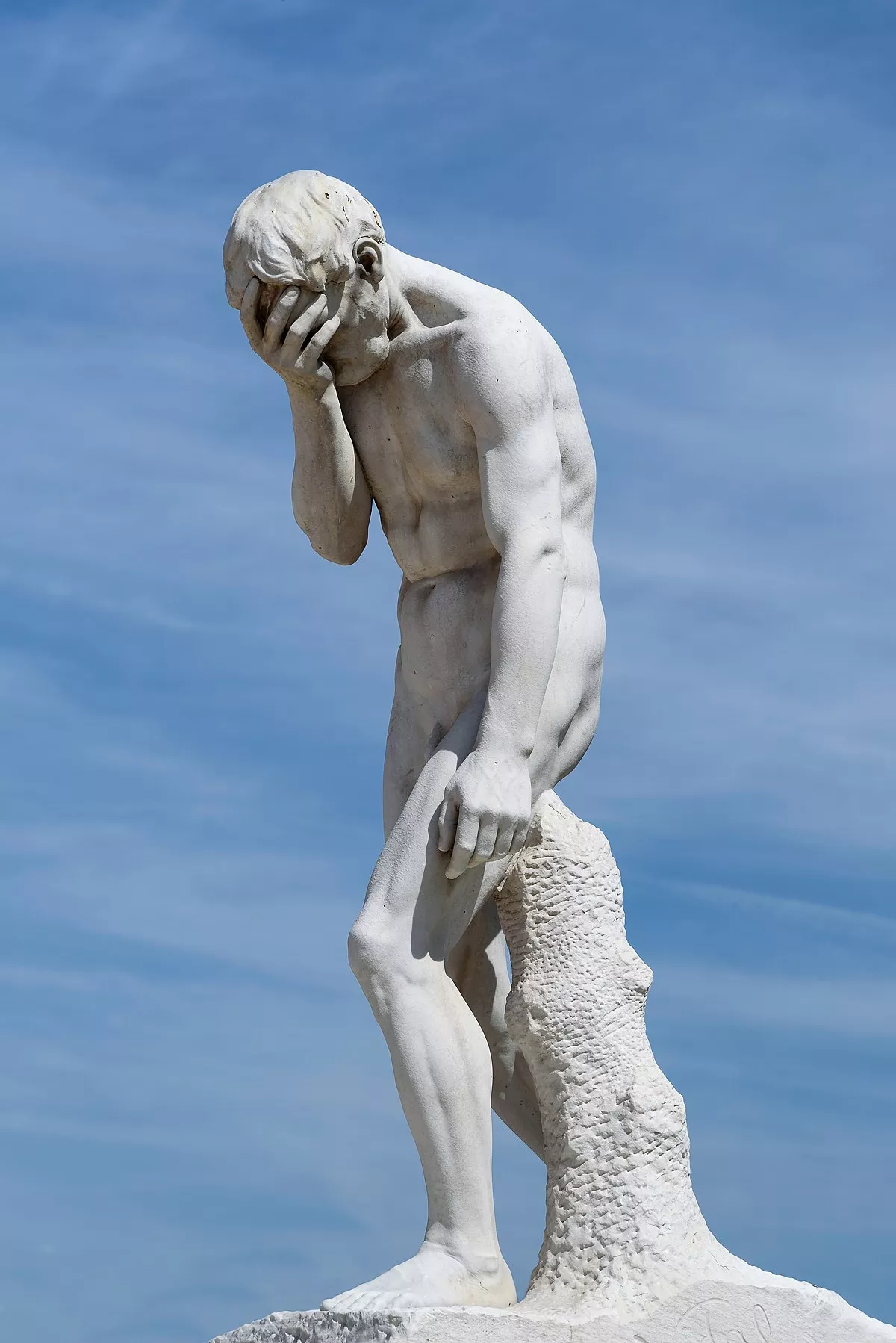 1.
1. Cain is a biblical figure in the Book of Genesis within Abrahamic religions.

 1.
1. Cain is a biblical figure in the Book of Genesis within Abrahamic religions.
Cain is the elder brother of Abel, and the firstborn son of Adam and Eve, the first couple within the Bible.
Cain was a farmer who gave an offering of his crops to God.
Out of jealousy, Cain killed his brother, for which he was punished by God with the curse and mark of Cain.
Cain had several descendants, starting with his son Enoch and including Lamech.
Some traditional interpretations consider Cain to be the originator of evil, violence, or greed.
The Midrash suggests that although Abel brought the best meat from his flock, Cain did not set aside the best of his harvest for God.
Cain becomes a "fugitive and wanderer" and receives a mark from God - commonly referred to as the mark of Cain - so that no one can enact vengeance on him.
Exegesis of the Septuagint's narrative, "groaning and shaking upon the earth" has Cain suffering from body tremors.
Cain's story is mentioned in the Quran, though without a name, where he and his brother Abel offer sacrifices; Abel's sacrifice was accepted while Cain's was not.
Cain gets angry and threatens to murder his brother, but Abel tries to console him, saying that God only accepts sacrifices from the God-fearing and that he wouldn't try to harm Cain.
Cain is described as a city-builder, and the forefather of tent-dwelling pastoralists, all lyre and pipe players, and bronze and iron smiths.
Cain then establishes the first city, naming it after his son, builds a house, and lives there until it collapses on him, killing him on the same year of Adam's death.
Pseudo-Philo, a Jewish work of the first century CE, relates that Cain murdered his brother at the age of 15.
Cain died at the age of 730, leaving his corrupt descendants to spread evil on Earth.
Later, Cain was killed at the hands of his great-grandson, Lamech, who mistook him for a wild beast.
The account states that Cain had earnestly sought death but was denied it, and that his mission was to destroy the souls of men.
The apocryphal Life of Adam and Eve tells of Eve having a dream in which Cain drank his brother's blood.
The author Daniel Quinn, first in his book Ishmael and later in The Story of B, proposes that the story of Cain and Abel is an account of early Semitic herdsmen observing the beginnings of what he calls totalitarian agriculture, with Cain representing the first 'modern' agriculturists and Abel the pastoralists.